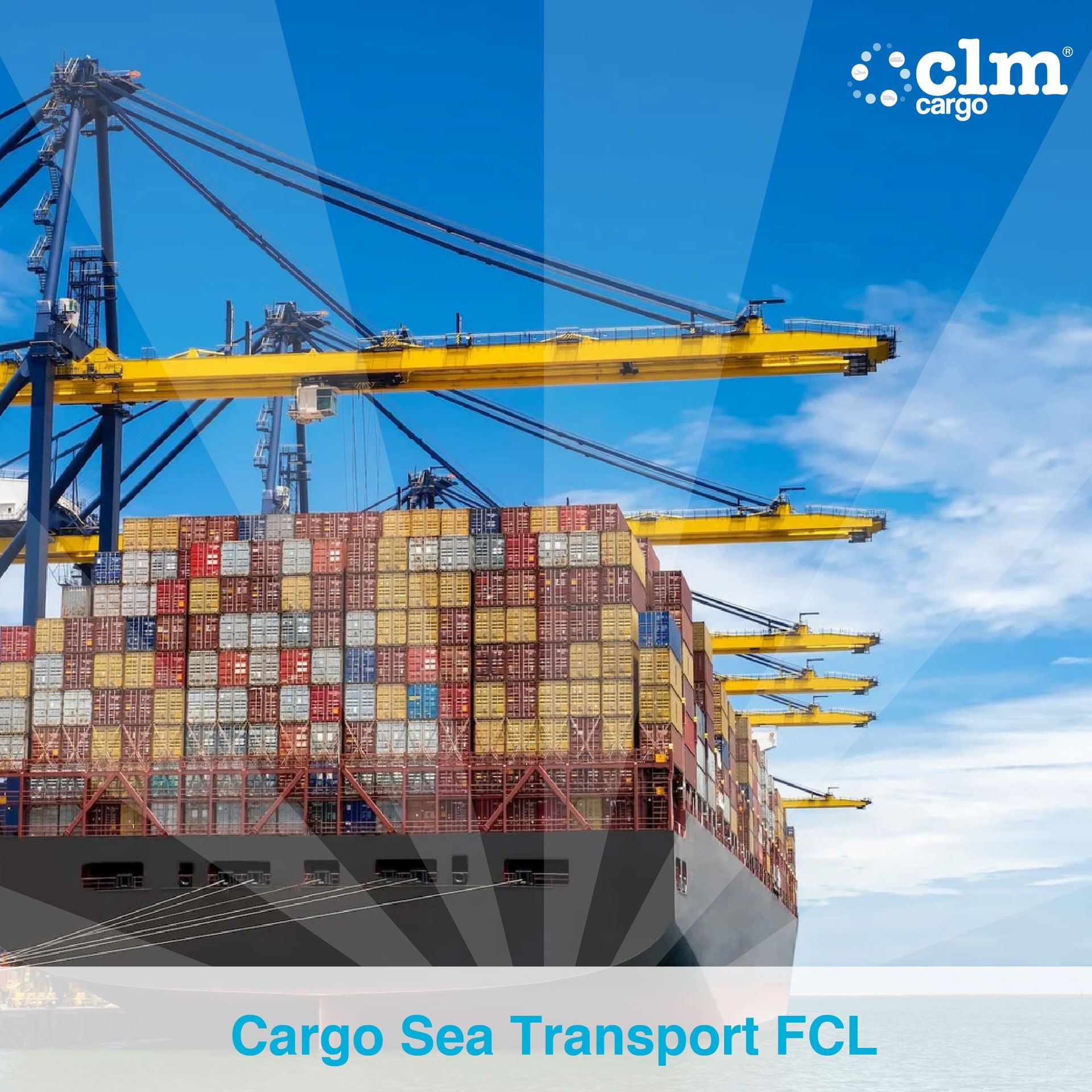FCL MARITIME FREIGHT TRANSPORT
FCL Maritime Freight Transport: Everything
You Need to Know in Colombia

FCL maritime freight transport offers the advantage of an exclusive container for a single shipper’s cargo. This ensures greater security during transit. Additionally, FCL is often more cost-effective for high-volume shipments, making it a competitive option in terms of cost and efficiency.
A large ship that carries cargo in Asia, Europe, North America, Latinoamerica, and Africa is waiting to move your ocean freight for you now. Get a quick and easy ocean freight shipment quote today. Having our contracts with different ocean freight companies like Maersk line, Mediterranean Shipping Company (MSC), COSCO Group, CMA CGM Group, Hapag-Lloyd, Ocean Network Express (ONE), Evergreen Marine, Yang Ming Marine Transport Corporation, Hyundai Merchand Marine, Pacific International Line (PIL), makes us offer you the most competitive and complete ocean freight rates LCL, FCL, RO-RO or Break Bulk with no hidden fees.
LCL Sea Transport,
FCL Sea Transport,
Break Bulk Sea Transport or
RO-RO Sea Transport
Allow CLM Cargo to become your international ocean freight forwarder in Colombia, the United States or Europe. We also provide partial LCL cargo shipping containers, full container load FCL, RO-RO and Break Bulk ocean services with years of experience serving our clients since 2007 in all aspects of sea freight forwarding.
Key Considerations Between FCL and LCL
Shipment Volume: A Determining Factor
Shipment volume is a crucial factor when choosing between FCL and LCL in maritime freight transport. FCL shipments are more suitable for large-volume cargo that occupies an entire container, which can be more economical and efficient compared to LCL shipments.
Cargo Security in FCL and LCL
Cargo security is essential when shipping goods by sea.
Security in FCL Shipments
In an FCL shipment, the cargo travels exclusively in one container, providing greater protection and reducing the risk of damage or loss during transport.
Security in LCL Shipments
In an LCL shipment, sharing space with other cargo may compromise security under certain circumstances.
Shipping Costs and Their Impact
Cost Advantages of FCL Shipments
Depending on the cargo volume, FCL transport can be more cost-effective on a per-unit basis, especially for large shipments.
Cost Considerations in LCL Shipments
LCL shipments tend to be more expensive per unit of cargo due to shared costs among multiple shippers.
Advantages and Disadvantages of FCL Maritime Transport
Exclusivity and Security in FCL
One of the main advantages of FCL maritime transport is the exclusivity it offers. When shipping an FCL load, there is certainty that the entire container is dedicated solely to that cargo, reducing the risk of handling or damage during transit.
Cost-Effectiveness and Competitiveness in FCL
FCL shipments are often more profitable when dealing with significant cargo volumes. By filling an entire container, businesses can obtain more competitive rates per transported unit, leading to savings compared to LCL shipments.
Factors to Consider When Choosing Between FCL and LCL
Urgency of Delivery as a Key Criterion
For shipments with tight deadlines, FCL is usually the best option as it allows for more specific closing dates to be scheduled.
Final Considerations for Decision-Making
When evaluating FCL versus LCL, factors such as capital availability, shipping frequency, and service reliability should be considered. It is essential to carefully analyze the specific needs of each shipment.
Additional Aspects to Consider When Choosing
Consulting with a Freight Service Provider
When considering FCL maritime freight transport, it is crucial to consult with the service provider to obtain detailed information on processes, requirements, and additional available services.
Evaluating Specific Costs
A thorough evaluation of specific costs associated with FCL maritime freight transport is essential. This includes not only freight charges but also potential additional fees, insurance, and other related shipping costs.
Managing Delivery Times and Potential Delays
Before choosing between FCL and LCL, it is essential to consider delivery time management and the possibility of potential delays. Factors such as the maritime route, port congestion, and weather conditions can impact the timely delivery of the cargo.






